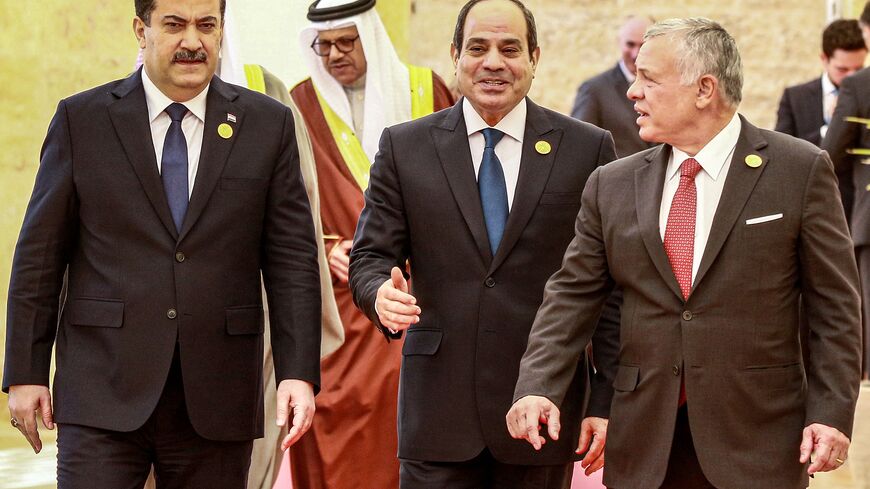US President Joe Biden and Jordan's King Abdullah II held a phone call from the White House on Thursday with Iraqi Prime Minister Mohammed Shia al-Sudani.
Biden reiterated the US commitment to Iraq in countering the Islamic State and supporting Baghdad. Biden also “commended the prime minister’s efforts to strengthen Iraq’s sovereignty and independence.” The two additionally discussed the Iraqi government’s economic agenda, according to a readout from the White House.
Abdullah, who is in Washington, was at a private lunch with the US president when the call was made. "King Abdullah stressed Jordan’s support for Iraq, including through joint strategic infrastructure projects," according to the White House.
Abdullah was in Washington to discuss the Israeli-Palestinian conflict with Biden. He also discussed "stability in the Middle East" with Secretary of State Antony Blinken, according to a tweet from the Royal Hashemite Court.
Sudani’s office said he and Biden also discussed US military operations in the region.
“His excellency the American president agreed that the stability of the region depends on the stability of Iraq and that Iraq should not be used as a springboard to attack its neighbors,” the prime minister’s office said in a tweet.
Why it matters: Sudani’s statement on Iraq being used as a “springboard” could be a reference to the military conflict between the United States and Iran-backed militias in Iraq and Syria. The militias sometimes attack the US military presence and embassy in Iraq. The United States has also conducted strikes on the militias in both Iraq and neighboring Syria.
Iraq is frequently caught in the middle of US-Iran tensions. On Jan. 16, Sudani held meetings with both Biden’s Middle East coordinator Brett McGurk and Iranian Quds Force commander Esmail Qaani.
Many of Sudani’s political allies in the so-called Coordination Framework that nominated him to be prime minister are close to Iran.
Biden and Sudani’s discussion of the Iraqi economy is also noteworthy. The Iraqi dinar is depreciating against the US dollar, in part due to restrictions the US Federal Reserve placed on money transfers from the United States to Iraq. The restrictions seek to curb illegal cash transfers to Iran.
The Iraqi government has taken some actions on the issue, including banning some banks from using dollars due to money smuggling concerns.
The Iraqi dinar fell to 1,750 to the US dollar on the street Thursday. The official rate remains 1,460 dinars to the dollar, according to The Associated Press.
Iraq and Jordan have increased their infrastructure cooperation in recent months, as per the White House statement. Last October, the two countries launched an electric grid connection project.
Jordan also hosted the Baghdad Conference for Cooperation and Partnership in December. The conference serves to promote stability in Iraq. Representatives of Turkey, Iran, Qatar and other countries attended the event.
What’s next: An Iraqi delegation led by Foreign Minister Fuad Hussein will visit Washington next week, the White House statement confirmed. The Kurdish Iraqi news outlet Rudaw reported last month that the delegation will discuss the currency issue with US officials.







